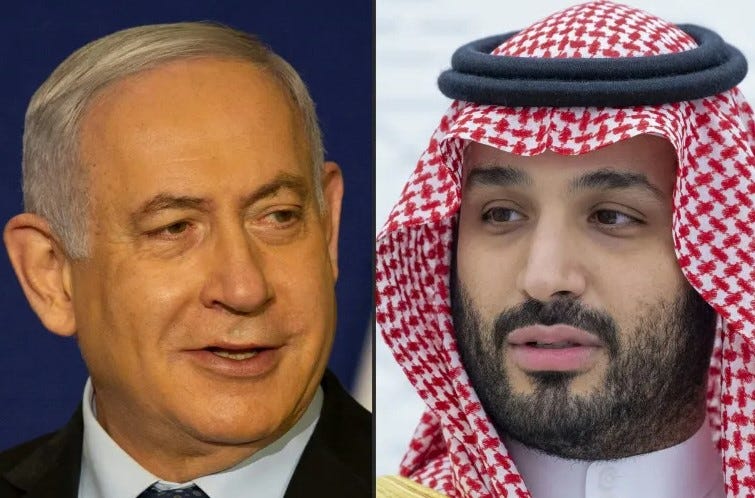Israel says the new ambassador can meet Palestinian officials but will have no fixed presence.

Israel has turned down the proposal for establishing a diplomatic center in Jerusalem intended for Saudi Arabia’s envoy to the Palestinian Authority (PA), who recently presented his credentials to Majdi al-Khalidi, the diplomatic adviser to Palestinian President Mahmoud Abbas.
Nayef al-Sudairi, the current ambassador of Saudi Arabia to Jordan, was designated as a non-resident envoy to Palestine and consul general in Jerusalem. The appointment took place at the Palestinian embassy in Amman, with Israeli Foreign Minister Eli Cohen stating on Tel Aviv’s 103 FM radio station that the new ambassador, Nayef al-Sudairi, would be able to engage with PA representatives but wouldn’t maintain a permanent presence.
Cohen stated, “We will not permit an official to establish physical residency in Jerusalem.”
Historical Context and Potential Normalization Traditionally, Saudi Arabia’s embassy in Amman has handled affairs related to the Palestinian territory. The move by Saudi Arabia aligns with the longstanding Palestinian objective of establishing a state in the territories occupied by Israel during the 1967 war, designating East Jerusalem as its capital. However, Israel considers Jerusalem as its capital, a stance recognized by the United States under former President Donald Trump in 2017, although not by other global powers. The city of Jerusalem is off-limits for Palestinian diplomatic activities due to Israeli restrictions.
Saudi Arabia, the birthplace of Islam, has traditionally championed the Palestinian cause and refrained from formal ties with Israel. Nevertheless, Washington has been working towards facilitating a historic Middle East agreement to normalize relations between Israel and Saudi Arabia.
Israel’s conservative government has downplayed the likelihood of significant concessions to the Palestinians as part of any normalization agreement with Saudi Arabia.
Riyadh, much like other members of the Arab League, has previously linked recognition of Israel with the fulfillment of the Palestinian statehood objective. One of the obstacles to achieving this goal is the divide between the internationally recognized PA and its rival faction, Hamas. Bassam al-Agha, the Palestinian ambassador to Riyadh, interpreted al-Sudairi’s appointment as a Saudi endorsement of Palestinian statehood and a rejection of former US President Trump’s declarations.
Al-Agha conveyed, “This signals the continuation of Saudi Arabia’s established positions,” during an interview with Voice of Palestine radio.
While Cohen indicated that Israel was not consulted about al-Sudairi’s appointment, he speculated about a potential connection to the prospects of normalization. Cohen suggested, “Behind this development could be the progress in talks between the US, Saudi Arabia, and Israel. The Saudis might be attempting to convey to the Palestinians that they are still mindful of their concerns.”